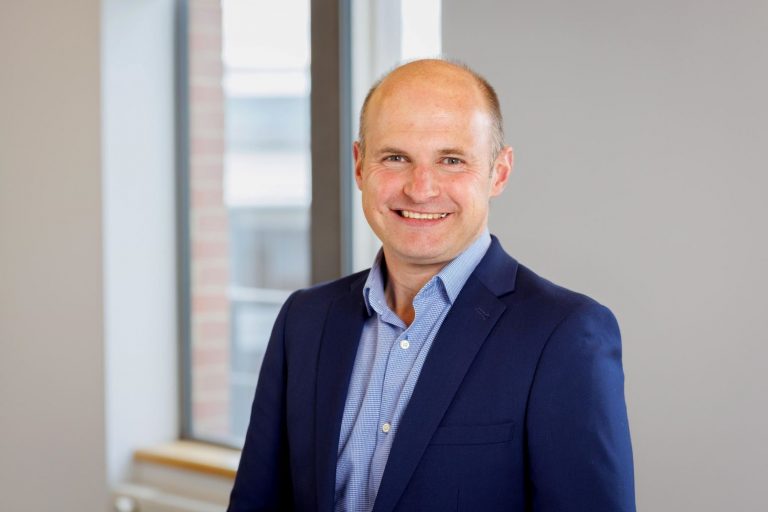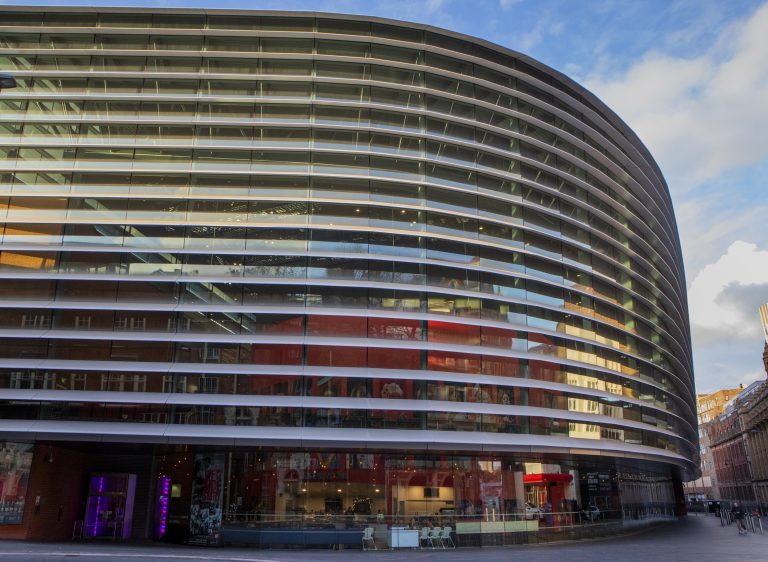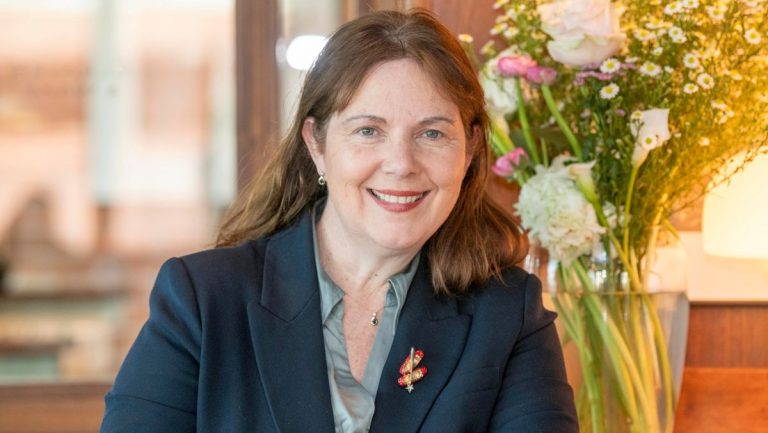East Midlands take-up growth dominates Big Box market for Avison Young
Center Parcs chief corporate officer appointed CBI East Midlands Council chair
Stepnell reports steady growth and plans for expansion
Stepnell has recorded its fifth consecutive year of profit, with turnover rising to £112 million and expected to reach £140 million in the current financial year. The construction firm attributes this sustained performance to disciplined sector targeting, regional expansion, and its participation in framework projects.
The company recently established a new regional base in Liverpool to strengthen its presence across the North West. It has also benefited from high levels of repeat business and selective bidding, supported by several senior appointments and refined governance processes designed to manage risks in a volatile construction market.
Stepnell has increased its investment in directly owned plant, helping to reduce operational costs and improve delivery efficiency. Its cash reserves have also grown due to stronger financial management, including tighter payment controls and account closures.
Tom Wakeford, chief executive at Stepnell, said:
“I am really pleased with where Stepnell is. We are ambitious and are currently focusing on setting longer term plans for the business. The organisation is in a strong position heading into 2026, with 96% of its planned revenue being secured by August.”
The release of its year-end accounts provides Stepnell an opportunity to take stock of its position, Tom added.
“We can rightly be proud of Stepnell’s performance over the most recent reporting period. This ever-improving position is indicative of our ongoing focus in making sure we are the right construction partner for each new scheme we take on, and our experience has shown that the earlier we are engaged on a project, the greater the probability the scheme will be a success for both us and our client.
“We’re proud to say that more than three-quarters of our work is with repeat clients where our previous projects have exceeded their expectations, a key driver being our ongoing focus on delivering excellent engagement.”
These results mark Stepnell’s first full year of trading since its demerger in September 2025, which transferred the business to Wakeford and his family. The company remains focused on steady expansion, improved profitability, and maintaining financial resilience as it moves into the next financial cycle.
Ilkeston leisure club placed on the market for new ownership
A major sports and leisure venue in Ilkeston, Derbyshire, has been put up for sale, marking a new chapter for one of the town’s most established fitness destinations.
The Manor, a long-standing health and racquet club, is being marketed by business property adviser Christie & Co. The site features international-standard squash courts, a multi-level gym, a dance and martial arts studio, a lounge bar, treatment rooms, and a fully equipped catering kitchen. It also includes a function space frequently used for events, parties, and weddings.
Located centrally in Ilkeston, the club operates on a membership model, with pay-as-you-go access available. It has served as a community hub for sport and fitness for nearly two decades.
Owned and operated by the Hayden family since 2007, The Manor is now being offered for sale as the family turns its attention to other ventures. The listing provides an opportunity for investors or leisure operators to build on the existing facilities or introduce new offerings, such as padel courts, subject to planning approval.
Gabriela Williams at Christie & Co commented, “This is a very exciting prospect which we expect to appeal to a wide range of potential buyers. It would be fantastic to see the building and the value it brings to the community thrive under new ownership.
“The club would be a great addition to an independent health and fitness operator’s portfolio, or a fantastic opportunity for a new start-up business. We encourage interested parties to get in touch with us.”
Christie & Co is inviting offers for the property’s long ground lease.
Rolls-Royce SMR signs key collaboration agreement
£175m decline in R&D tax relief claims by Midlands SMEs
Curve Theatre reports record year with £18.5m turnover
Leicester’s Curve Theatre has reported its most successful financial year to date, achieving an annual turnover of £18.5 million for 2024/25.
Between April 2024 and March 2025, more than 265,000 tickets were sold for performances at the venue. The programme included Made at Curve productions such as My Fair Lady, The Mountaintop and Fantastic Foxes, alongside national tours including Tina – The Tina Turner Musical and My Son’s a Queer (But What Can You Do?). The theatre also staged 132 accessible performances, including BSL-interpreted, captioned, and relaxed sessions.
Curve’s reach extended beyond Leicester, with its productions touring over 107 cities and drawing more than two million ticket sales. The year also marked the launch of the Kinky Boots UK and Ireland tour and the return of A Chorus Line, which completed a sell-out season at Sadler’s Wells.
As a registered charity, Curve raised over £1 million through donations, grants and sponsorship. Its creative engagement programmes attracted 27,500 participants, with more than 350 school groups attending performances. Around 1,000 artists participated in development programmes, supported by 1,220 hours of in-kind rehearsal space.
Speaking about the results, Curve’s Chief Executive Chris Stafford and Artistic Director Nikolai Foster said:
“We are immensely proud to report on another terrific year for our theatre — the most successful since we opened our doors in 2008. Not only did attendance reach an all-time high for audiences here in Leicester, but working in partnership with other theatres and commercial producers we were able to fly the flag for Curve around the UK and internationally, reaching over 2 million people.
Curve would not be the place it is today without the people who make it happen, and these outstanding results are a testament to the incredible team at Curve and the talents of our wonderful freelance colleagues. As always huge thanks to the support from our fantastic audiences, donors, sponsors, and our principal funders Arts Council England and Leicester City Council.
Whilst we are delighted to share such positive news, like most theatres we are operating in an ever-more challenging environment, with rising costs continuing to affect our operations. We urgently need to build sufficient funds for essential capital replacements to ensure Curve thrives into the future.”
Nearly one-third of audiences were first-time visitors, and 1,000 free tickets were distributed through community networks, reinforcing Curve’s commitment to accessibility and community engagement.
£25m investment fund to power East Midlands growth
eComOne appoints ex Rise at Seven co-founder, Stephen Kenwright, as non-executive director
Amazon expands East Midlands footprint with £1.7bn investment
Amazon has channelled £1.7 billion into Derbyshire and Nottinghamshire since 2010, underscoring the region’s growing importance to the company’s UK operations.
According to Amazon’s latest Economic Impact Report, the investment has supported more than 8,000 full and part-time jobs in the East Midlands, alongside the upskilling of over 1,800 employees through training and career development schemes. Around 190 local workers have also joined its national apprenticeship programme since its introduction.
Amazon’s regional investment forms part of a wider plan to inject £40 billion into the UK between 2025 and 2027. The three-year expansion includes four new fulfilment centres, additional delivery stations, and upgrades to over 100 existing facilities. This nationwide rollout is expected to create thousands of full-time roles, including 2,000 each at new fulfilment centres in Hull and Northampton.
The company currently employs more than 75,000 people across the UK, with salaries starting from £28,000 outside London. New roles span robotics maintenance, mechatronic engineering, and workplace safety.
Amazon’s community engagement in the region includes volunteer initiatives, product donations, and partnerships with local charities. Nationally, the firm supports educational and social projects such as Amazon Future Engineer and the Multibank initiative, which redistributes surplus goods to families in need across the UK.












